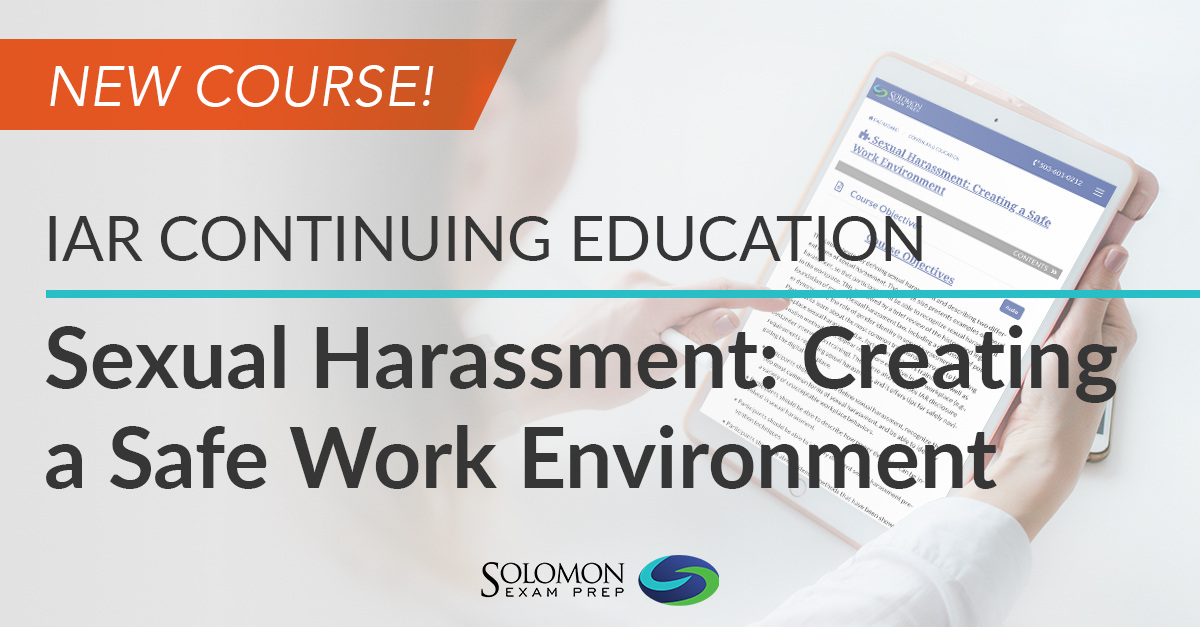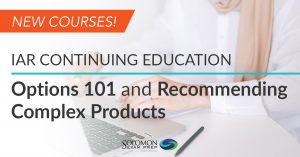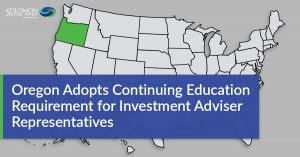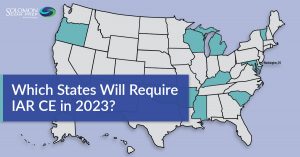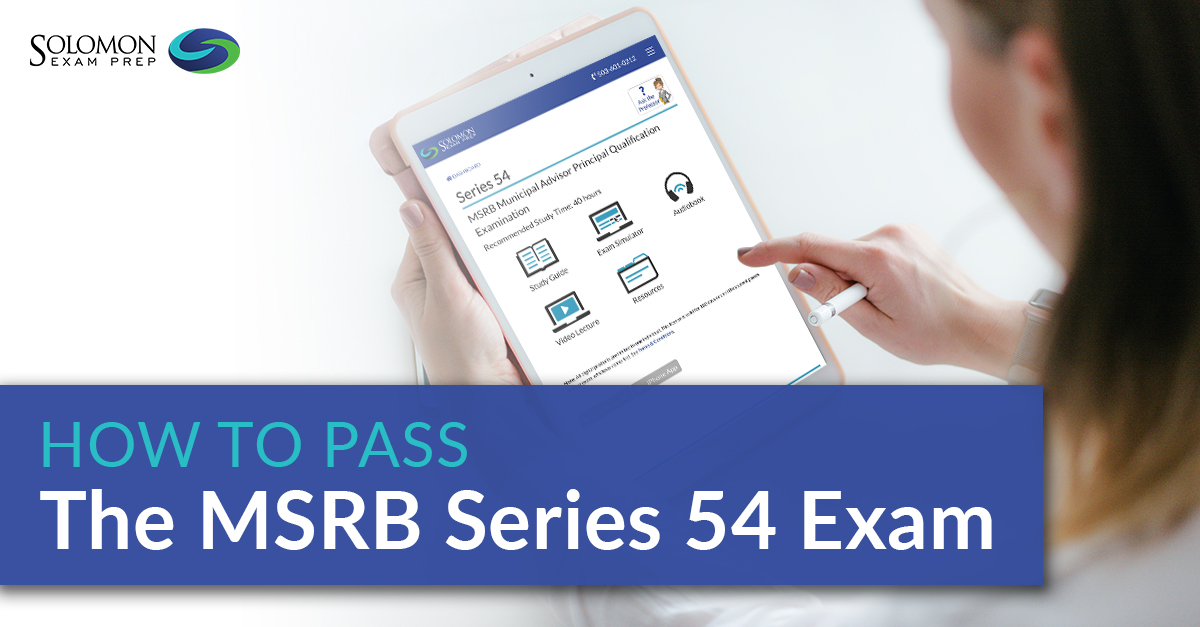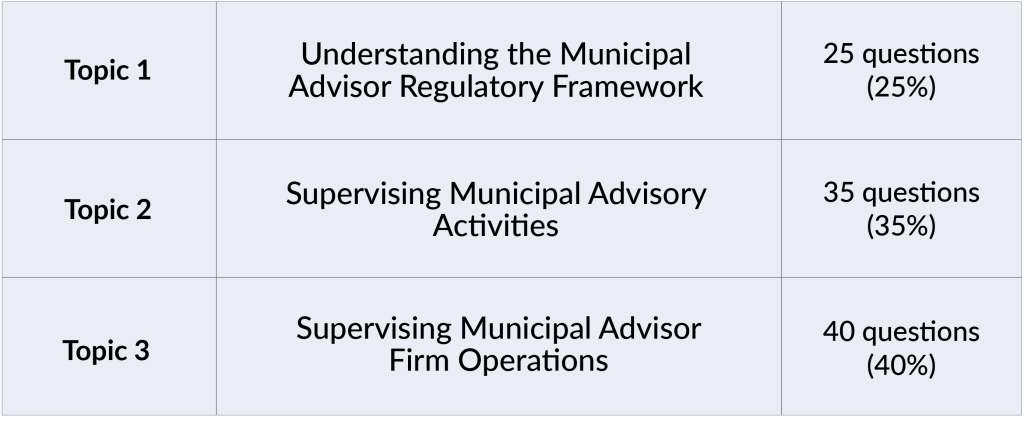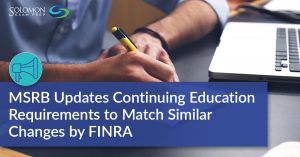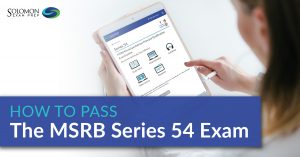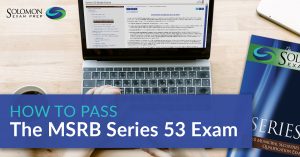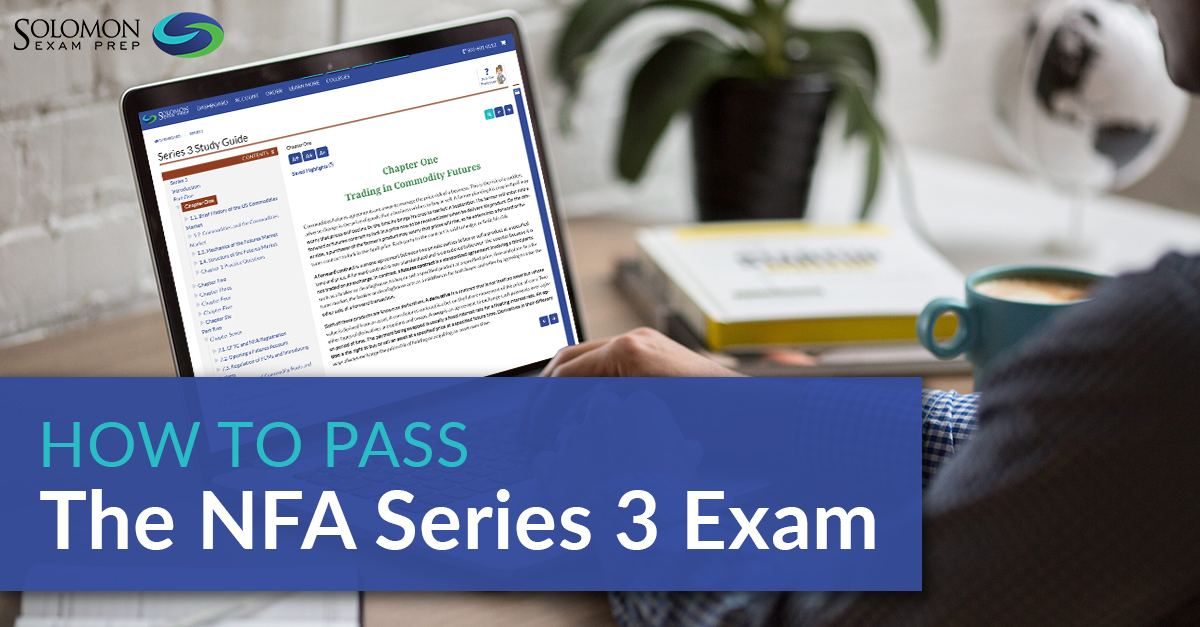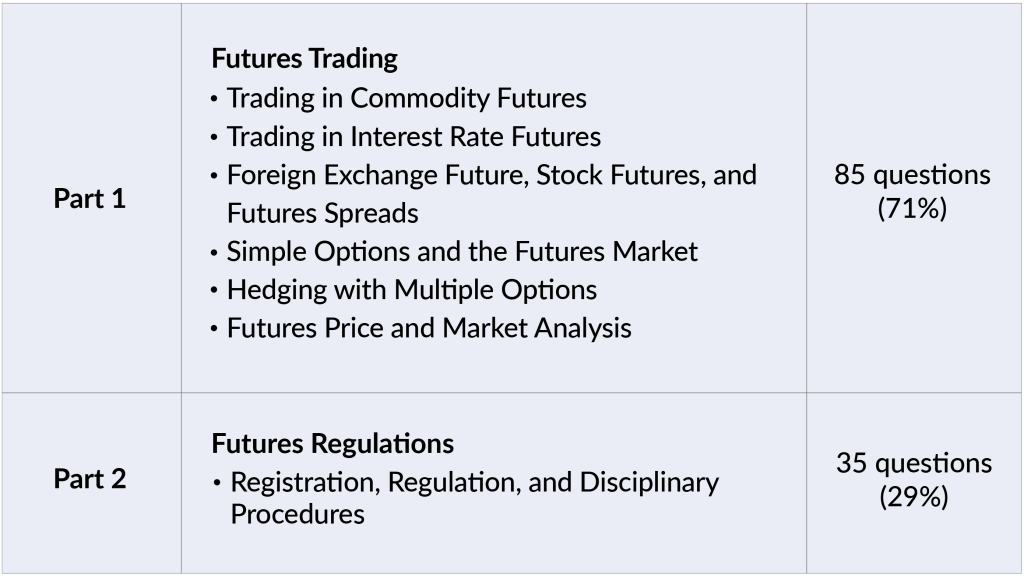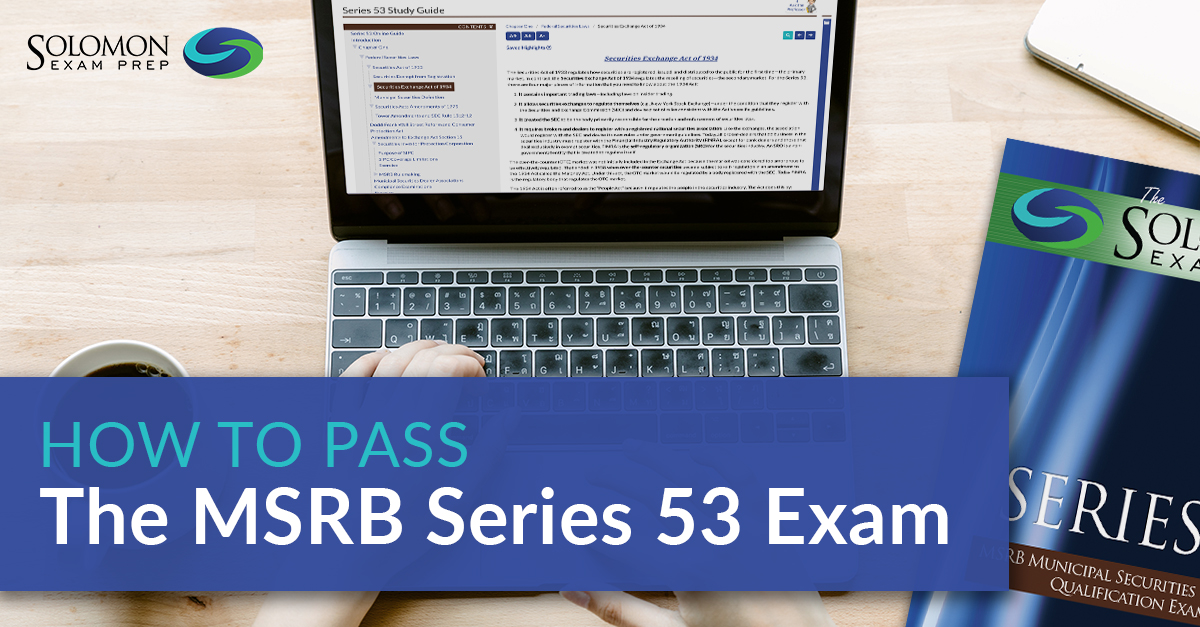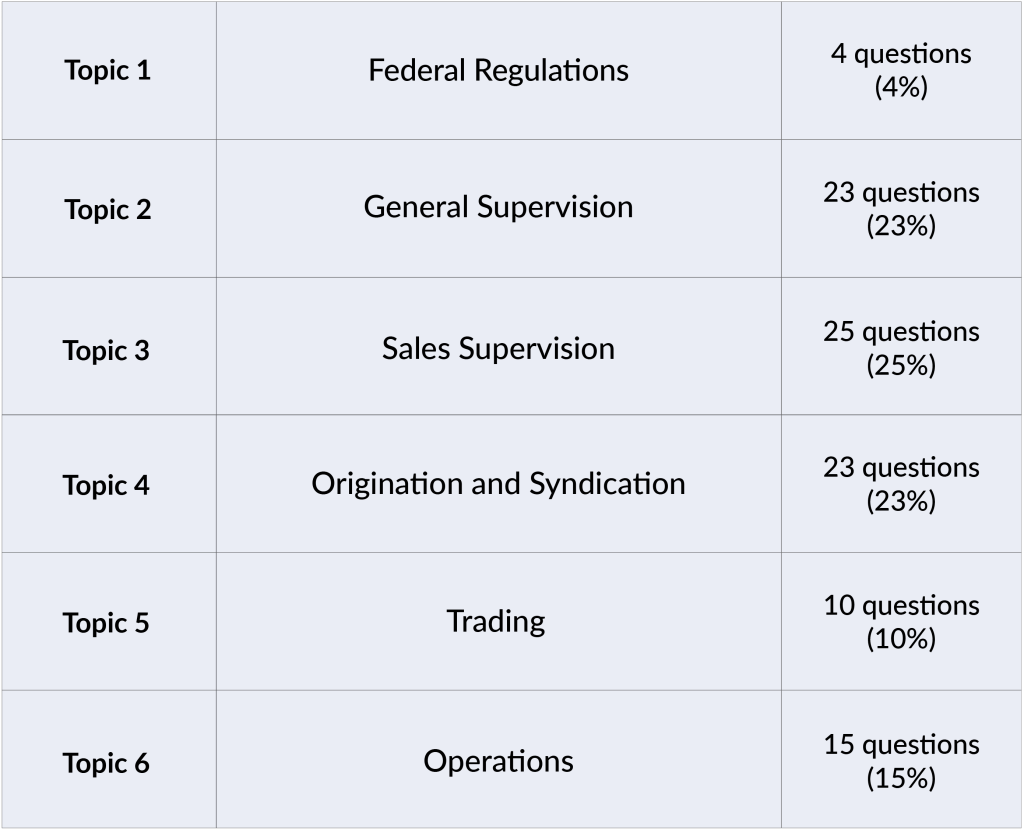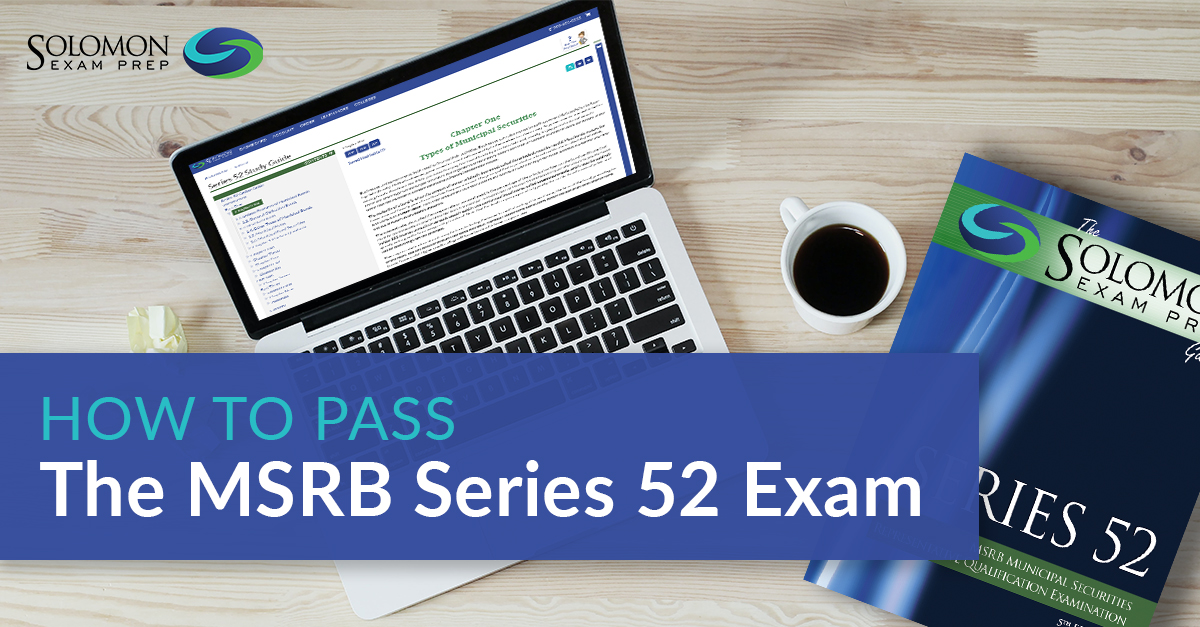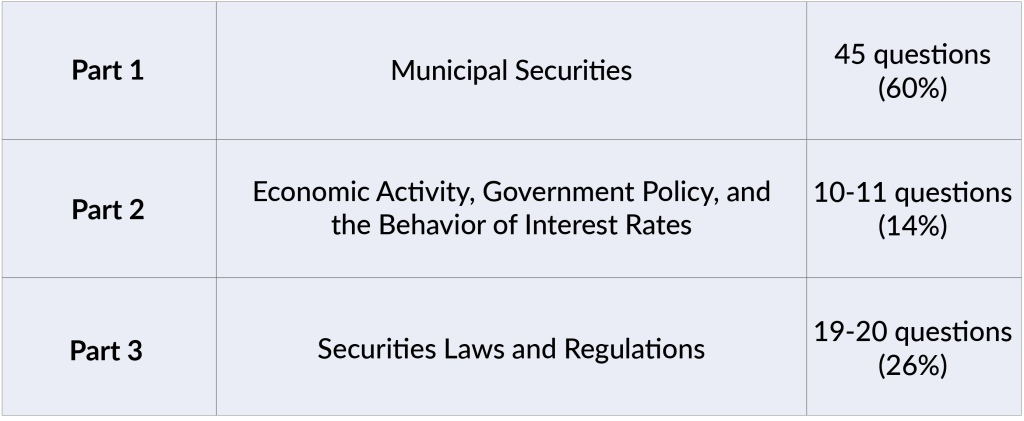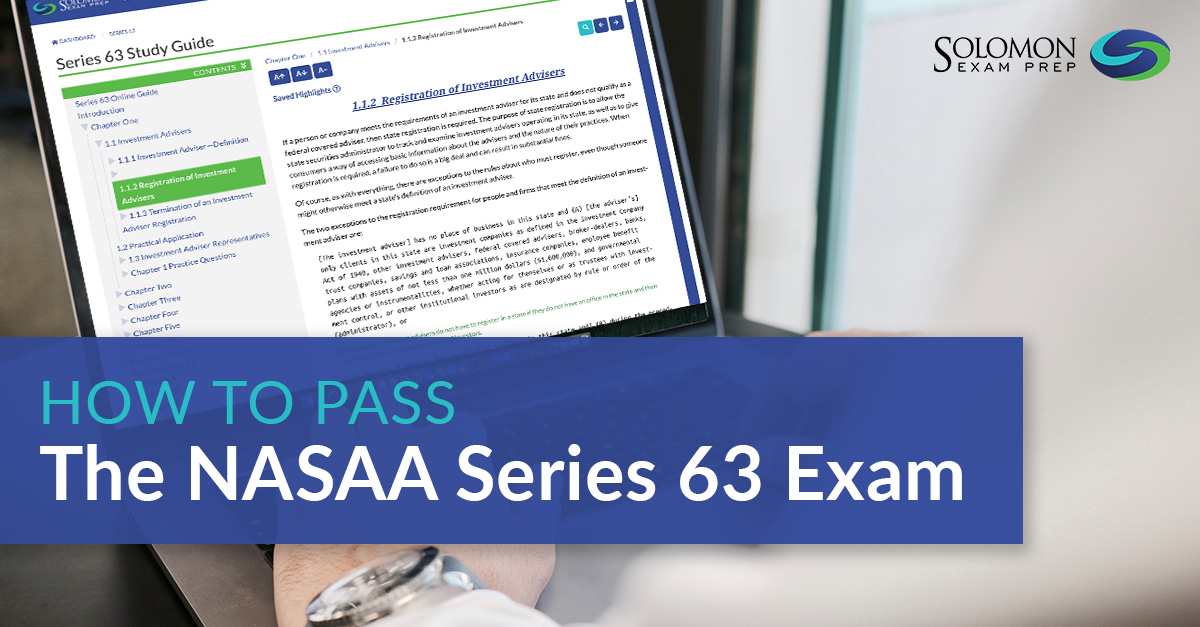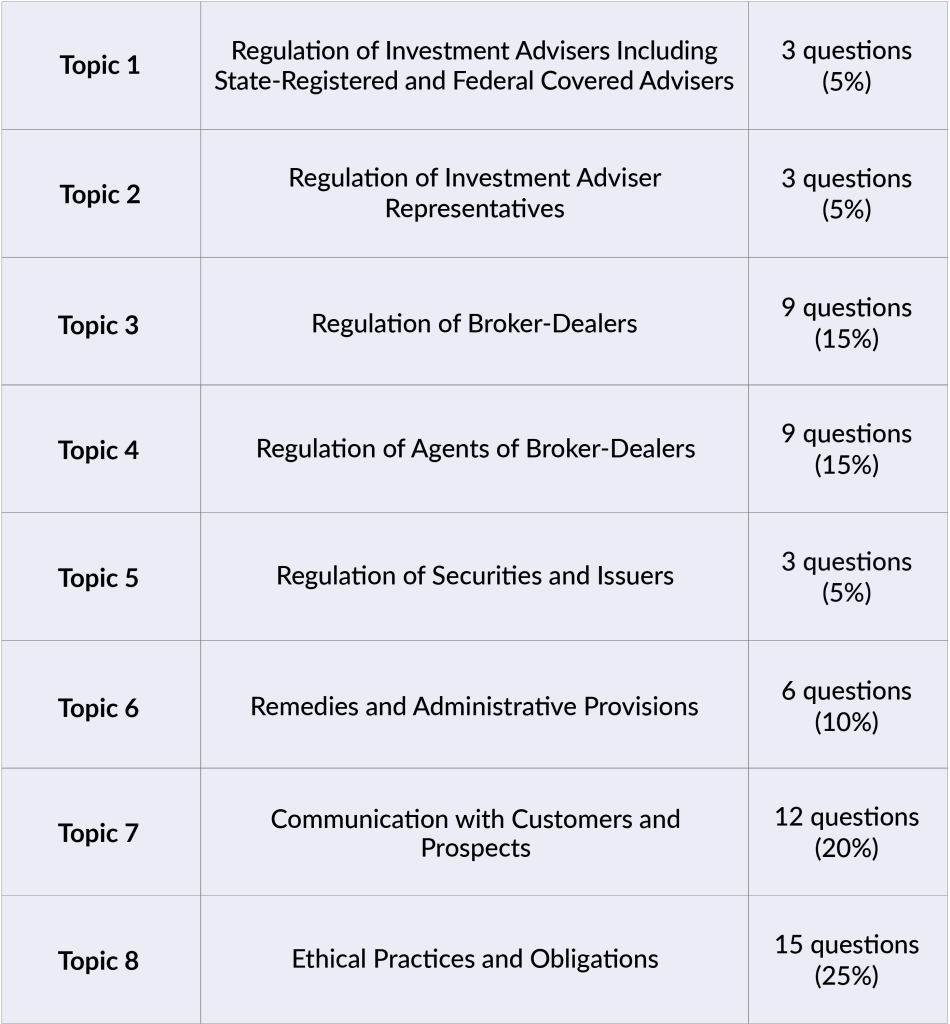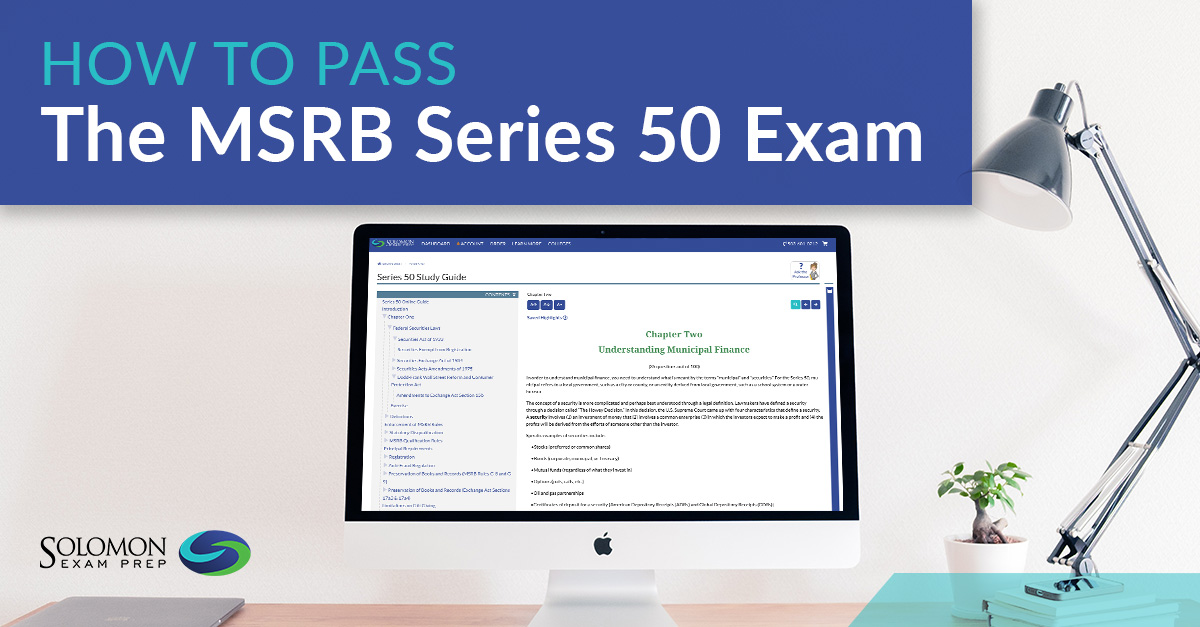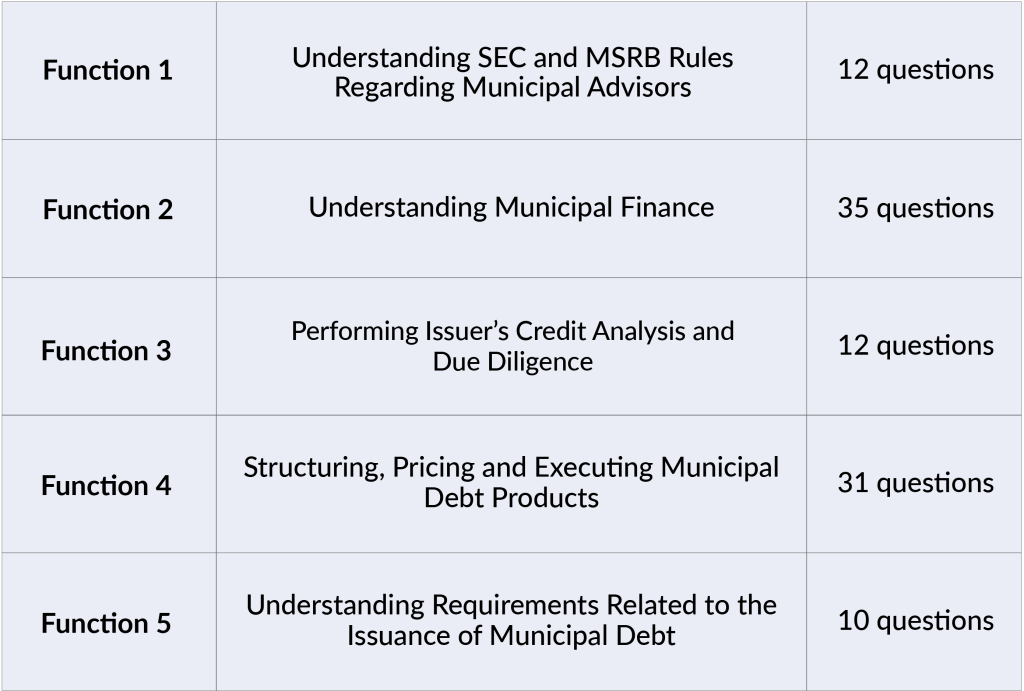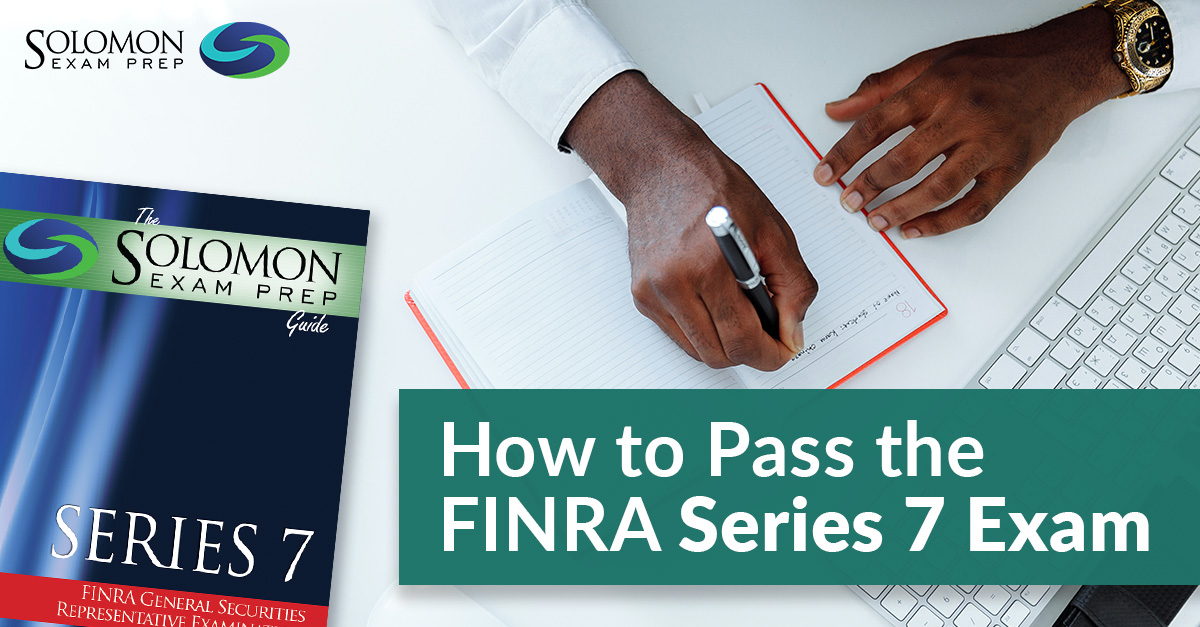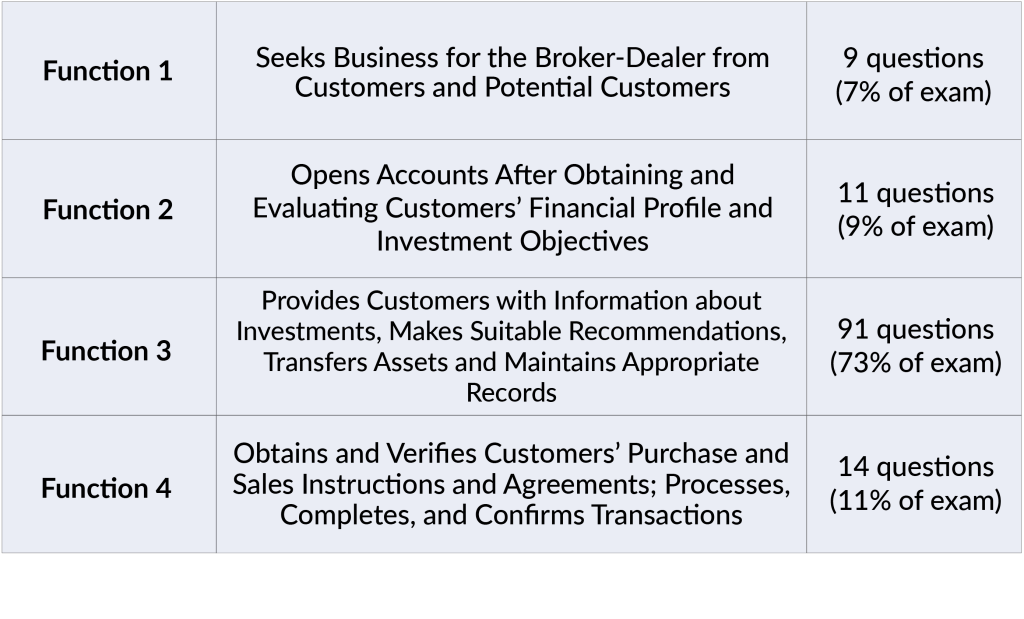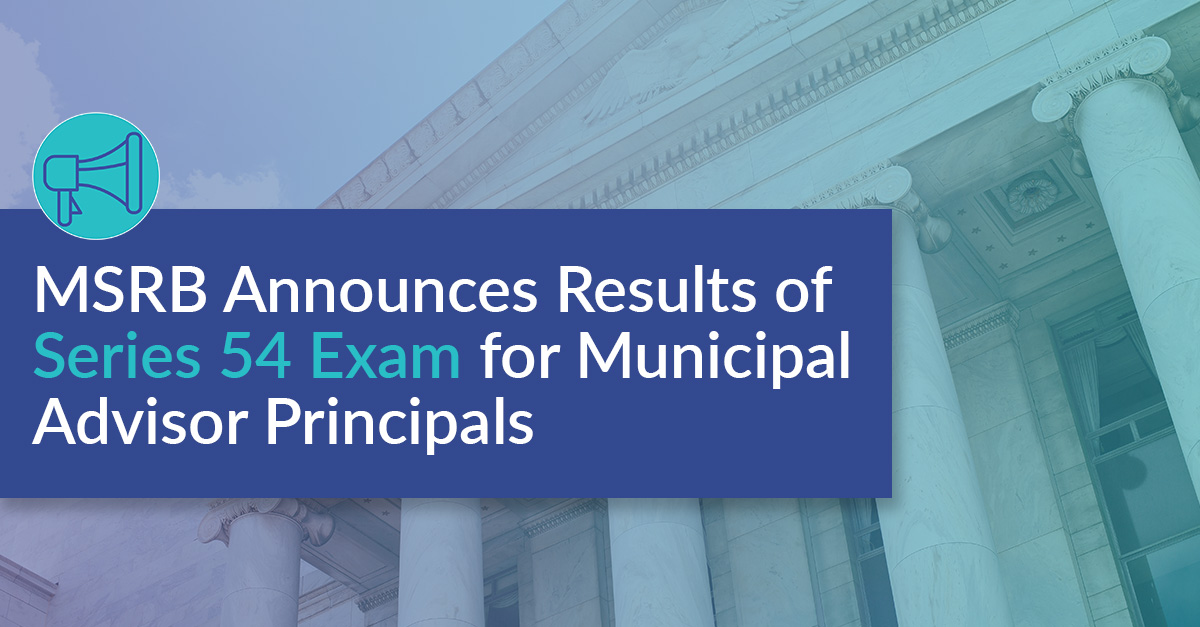Solomon Exam Prep has just added a new course to its Investment Adviser Representative Continuing Education course library. The course, “Sexual Harassment: Creating a Safe Work Environment,” has been approved by NASAA and earns credit towards the new CE requirement for investment adviser representatives (IARs).
About the Course
Employers are responsible for creating work environments where employees are safe and free from sexual harassment. Employees must also understand what sexual harassment is so that they can recognize and prevent it.
This course defines sexual harassment and provides examples that will help you learn to recognize it in the workplace. You’ll learn about the history and legal foundation of modern sexual harassment law. This includes a discussion of power dynamics and the role of gender identity. The course then introduces you to both traditional and alternative approaches to handling workplace harassment. Finally, you’ll learn about IAR disclosure requirements regarding sexual harassment and get tips for safely navigating the digital workplace.
By the end of the course, you’ll be able to do the following:
- Define sexual harassment, recognize the two most common forms of sexual harassment, and be able to identify a variety of unacceptable workplace behaviors
- Describe how power dynamics can be involved in sexual harassment
- Identify different sexual harassment prevention techniques
- Identify methods that have been shown to improve worker satisfaction regarding sexual harassment issues
- Know the disclosure obligations of IARs with respect to sexual harassment and sexual assault
- Identify several ways to make digital workplaces safer for all workers
The Solomon Sexual Harassment CE course is worth one credit for the Ethics and Professional Responsibility category and falls within the Ethics sub-category. IARs must complete six credits of Ethics and Professional Responsibility courses each year, with three of these being Ethics courses. The other six of the 12 required IAR CE credits must be in the Products and Practices category.
About Solomon IAR CE courses
Solomon’s online IAR CE courses are self-paced and accessible on any internet-enabled device. Each course consists of short reading passages followed by quick assessments of 2–4 questions each. This read-and-quiz format facilitates learning and retention.
All Solomon IAR CE courses earn credit towards the Products and Practices, or the Ethics and Professional Responsibility, categories required by NASAA. Once you begin a course, you have up to 365 days to complete it. When you finish a course, Solomon reports completion to FINRA, NASAA’s vendor for program tracking.
What is the IAR CE requirement?
Investment Adviser Representatives registered in a jurisdiction that has adopted and implemented the NASAA model rule must do annual continuing education. To fulfill the IAR CE requirement, IARs must complete 12 credits of continuing education each calendar year.
To learn more about the IAR CE requirement, visit the Solomon IAR CE FAQs page. Explore Solomon’s entire IAR CE course library – purchase individual courses or a membership to the whole library and complete all your IAR CE in one place.
Disclaimer: NASAA does not endorse any particular provider of CE courses. The content of the course and any views expressed are our own and do not necessarily reflect the views of NASAA or any of its member jurisdictions.

